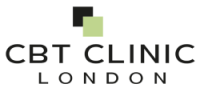
OCD Therapy CBT Private Clinic East London
OCD Therapy CBT Private Clinic East London
Obsessive-Compulsive Disorder or OCD is a common, chronic and long-lasting disorder of the brain in which an individual has uncontrollable, reoccurring thoughts [obsessions] and behaviours [compulsions] that he or she feels the urge to repeat. The disorder can be treated with medication, psychotherapy or a combination of both. Some individuals respond well to treatment, whereas some continue to experience symptoms. Some individuals with OCD can have other mental disorders, such as anxiety, depression and body dysmorphic disorder.
Obsessive-Compulsive Disorder and CBT Therapy Treatment
We welcome telephone enquiries in the first instance, call our offices on 0207 157 9924 we are closed on Sundays. Opening hours: Monday 8am–9pm, Tuesday 8am–9pm, Wednesday 8am–9pm, Thursday 8am–9pm, Friday 8am–9pm, Saturday 10am–5pm.) or you can send us a message via the Contact Form online.
Age, Sex and Obsessive-Compulsive Disorder Diagnosis
Obsessive-Compulsive Disorder can affect adults, adolescents and children. Most individuals are diagnosed by the age of 19, typically there is earlier onset in boys than in girls, but onset after the age of 35 can happen.
It is common for all individuals to double check things at times however those individuals with Obsessive-Compulsive Disorder cannot control their throughts or behaviour, even when such thoughts and behaviours have been recognised as excessive. Individuals with Obsessive-Compulsive Disorder have symptoms of obsessions, compulsions, or both and they can interfere with every aspect of daily life, from work, to school and personal relationships.
OCD Common Obsessions: Obsessions are repeated thoughts, urges, or mental images that can cause the individual anxiety:
- Fear of germs or contamination
- Unwanted forbidden or taboo thoughts, involving sex, religion and harm
- Aggressive thoughts towards the self or others
- Having things symmetrical or in a perfect order
Individuals with OCD do not want to have these thoughts and can find them disturbing. In most cases individuals with OCD realise that these thoughts do not make sense. These obsessions are typically accompanied by intense and uncomfortable feelings such as fear, disgust, doubt, or a feeling that things have to be done in a way that is just right. These obsessions are time consuming and can get in the way of important daily tasks.
Compulsions are repetitive behaviours than an individual with Obsessive-Compulsive Disorder feels the urge to do in response to an obsessive thought:
- Excessive cleaning and/or hand-washing
- Ordering and arranging things in a particular, precise way
- Repeatedly checking on things, such as checking to see if the dor is locked, or that the oven is turned off
- Compulsive counting
Compulsions are behaviours or thoughts that an individual uses with the intention of neutralising, counteracting, or making their obsessions go away. Individuals with OCD realise that this is only a temporary solution but without a better way to cope they often rely on their compulsions as a temporary escape. These compulsions are time consuming and can get in the way of important daily tasks.
These individuals often spend at least an hour a day on such thoughts or behaviours, they do not get pleasure when performing such behaviours or rituals but they may feel brief relief from the anxiety the thoughts may be causing them, and they can experience significant problems in their daily lives due to those thoughts and behaviours. A tic disorder can also be common with some individuals with Obsessive-Compulsive Disorder. Motor tics are sudden, brief and repetitive in nature such as eye blinking, facial movements, shoulder shrugging or head jerking. Common vocal tics can include repetitive throat clearing, sniffing or grunting.
Canary Wharf OCD Private Therapy CBT Clinic
These symptoms can come and go, ease over time or become worse. CBT Therapy is the most effective treatment for the symptoms of OCD and you can find more about how we treat OCD and many other common mental health difficulties with us here in Canary Wharf.

What Is Low Self Esteem?
What Is Low Self Esteem?
We are all guilty of perhaps not looking at ourselves in a constant positive light. Often, we self criticise, be it with a focus on the way we look, dress, our character, intelligence, or skill sets.
People with low self esteem have a tendency to perpetually fill themselves with negative thought processes, reminding themselves of the failures they have encountered and are likely to encounter in the near future. Of course, this has a direct impact on a persons mental health as the perception of self is constantly negative and overwhelmingly so.
Any form of negative thinking has a lasting effect on our psychological health and the further we let these unfavourable thoughts eat away at us, we become more and more convinced that we are just not good enough.
More often than not, low self esteem can be the leading cause of depression. As the train of negativity towards yourself sees no sings of abating, a person become discouraged and even fearful at doing something which will quite possibly confirm their own inadequacies Furthermore, the fear of others finding your inadequacies and your associated sense of humiliation, depression, and despair are also symptoms of true low self esteem.
Fear and anxiety are the fundamental components for those suffering with low self esteem; the fear of failing and of being a failure, and the anxiety which engulfs a person because of their fears. Feeling like they no longer have a place in the world, a person with low self esteem then becomes withdrawn and constantly expects the worst. This anxiety is often all consuming and develops without any rational thinking whatsoever, as a person is overtaken with their own clouded perspectives and judgements.
Another common trait for those facing the misery of low self esteem is over-sensitivity. A once confident person would suddenly become defensive and easily hurt or offended, repeatedly looking for proof that they are being rejected by those closest to them, despite this being far from the reality.
Low self esteem shows itself in very noticeable ways as those plagued with an unhealthy self loathing struggle to interpret their mixed emotions. Unable to bounce back from any situations, the lack of self confidence can subsequently lead to a mistrust of themselves and others, as well as a decline in social activity and motivation.
From the outset it may seem as though you’re just having a bad day and you’re allowing yourself to be buried in a bout of self pity however, it is easy to fall into a trap of self degradation for which escaping can be somewhat difficult. Once on a downward spiral it can be a tough job to pull yourself back, particularly when trying to understand why you’ve suddenly become so negative, and what triggered such destructive thoughts.
While low self esteem is not considered as a mental health problem , it is easy to see how, if not dealt with appropriately, low self esteem can interrupt daily life at an alarming rate. As a root cause of depression, this obstacle influences decision making skills and has the ability to cloud the senses, which can lead to frustration and further anguish. Breaking this cycle of negativity isn’t easy but it isn’t impossible either. With the right guidance and support, you can become more confident in yourself and your abilities, find the inner strength to challenge yourself, and develop more self awareness so you can prevent the way you feel from overtaking you both physically and emotionally.
Learn More

Depressed? Beware The Positive Thinking Trap!
That’s pricey for a pair of shoes! Her next door’s not bringing her kids up right. What does she think she looks like? That bloke on the news is definitely guilty. Does Mohair go with suede?
Well, we are human after all and as result we naturally judge and evaluate everything in our lives. We see things as good or bad, right or wrong and positive or negative. Our ability and desire to judge and evaluate everything is hard-wired into the human brain, without it our species would not be here today it’s literally what’s kept us alive. But sometimes as we’ll see it can also keep us trapped and cause us a whole range of other problems too.
And as is if we didn’t have enough in our life to judge, some clever soul way back in the 1940’s discovered a whole new domain that we ‘need’ to keep judging – our thoughts! Originating from the USA, early self-help books, started talking about the necessity for us to all think positively too.
This is a message that has been drip fed to us for so many years it is now been ingrained in our psyche. There appears to be no caveats, no exceptions, thinking positively is the right way to think, for everyone and in every situation in life.
When we are depressed though, this “positive thinking” mantra can easily backfire on us. Firstly, as any depressed person will tell you, just like doing the Hoovering, “Positive Thinking” is so much easier to do when you are not suffering with depression. Trying to constantly think positively when depressed is exhausting and we often end up depleting our already limited energy reserves. Secondly the idea that we must “think positively” when we clearly aren’t or we feel unable to do it, can make our depression worse as oops, now there’s another thing we’ve failed at.
Of course positive thinking can be highly beneficial when our psychological health is already in great shape. But what do we do when our psychological well-being has taken a real nose-dive?
In Cognitive Behavioural Therapy or CBT for short, we like to think differently. We ask our depressed and anxious patients to try to suspend the positive or negative judgement on what they are thinking and to ask themselves a different question– “Is my thinking helpful or unhelpful”. And when we say ‘helpful’ we mean:
- Does that thought or idea make you feel the way you want to feel?
- Does that thought get you to become the person you wish to become?
- Does that thought or way of thinking aid you in achieving your goals and where you want to be in life?
You see this way it’s up to you. You say whether that thought, idea or belief is helpful or unhelpful to you and your life. You evaluate the thought through your own criteria and not through someone else’s.
If we decide that the thought, idea or belief is unhelpful then the impetus to change it to a more helpful one (again you decide what is a more helpful thought) can come from deep within us. As a result we can often get a extra burst of self -generated motivation or energy to aid us in making the change. Also hopefully, like millions of other people around the world, you may find that the harshness and the intensity of the emotion you are feeling is also reduced.
Like everything in CBT we never ask you to blindly accept anything without trying it out first and experiencing it for yourself. So here’s a little assignment:
Select a week when you are going to try it out. Then on the Monday keep a diary of your thoughts. Look at them as you are writing them down and ask yourself are they helpful or helpful? Notice and record how you feel emotionally on that day *. On the Tuesday go back to harshly judging your thoughts as right or wrong, good or bad, positive or negative. Notice how you feel that day. Keep switching between the two different ways of thinking every alternate day until the week is up.
By the end of the week you’ll be in an excellent position to judge for yourself which way of evaluating your thinking works best for you.
*For a bonus to the assignment also write down a more helpful thought to substitute for the unhelpful ones and again record how you’re feeling.
Learn More
